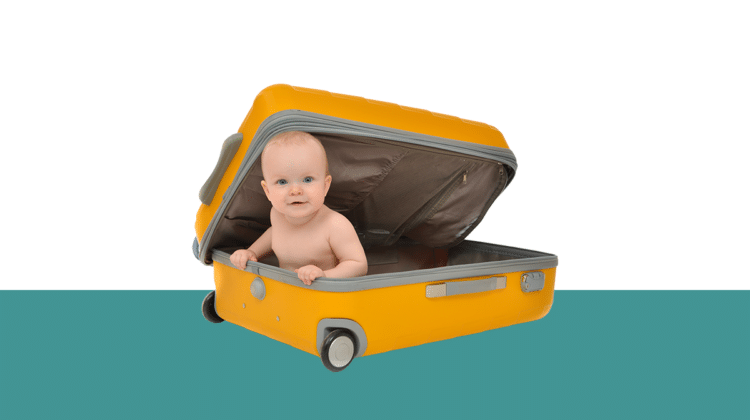
The ICPC is the set of laws that govern adoptions when the child is adopted from one state to adoptive parents who reside in another state. When adopting across state lines, ICPC adoption regulations are non-negotiable. You could be accused of child trafficking if you disregard the ICPC and take matters into your own hands. Cutting through the legal jargon, a roadmap to adhere to these essential rules is necessary to seamlessly facilitate an interstate adoption. You should be versed in the outline of the process, the responsibilities that are required, and the support or tools that you need in order to expedite your interstate adoption journey.
Quick Answers
- The Interstate Compact on the Placement of Children (ICPC) is a legislative agreement that ensures safe and regulated interstate adoptions, upholding child welfare while complying with laws of all states involved.
- If Child Protective Services (or DCFS, in Illinois) is involved, the respective state agency may complete the appropriate ICPC process.
- The ICPC applies in cases of interstate adoptions or other placements of a children out-of-state.
- Every state has an ICPC office, and placement of a child out-of-state requires approval of the ICPC office of the child’s home state.
- The child is considered to have a “home state” under the law, and removing the child illegally or adopting the child out to another state without following the specific requirements of the ICPC is prohibited and can have very serious consequences.
- You must comply with the requirements of the Interstate Compact on the Placement of Children if you take a child to another state to be adopted. You may suffer severe consequences if you fail to comply with the ICPC process.
- Adoptive parents, caseworkers, adoption lawyers, and other adoption professionals must follow a detailed ICPC process, with essential documentation being prepared and submitted in compliance with state-specific requirements to prevent legal issues and potential nullification of the adoption.
- ICPC adoption cases vary by state and may have special considerations for different child groups or situations. Failure to meet the technical requirements of the ICPC can lead to delays, disruptions in the adoption process, or revocation of approvals.
The ICPC in Adoption Scenarios
Adopting from another state introduces complexities, such as ensuring adherence to the ICPC, which mandates additional paperwork and communication between states to regulate the care and movement of children across state lines. The laws of both the sending state as well as the receiving state must be complied with. In certain instances, the parties involved in an ICPC adoption can chose whether specific portions will conform to the laws of the sending state or to the laws of the receiving state. The state from which the child comes from (or the child’s home state) is known as the sending state. The state to where the child is being sent (or the state where the adoptive parents reside) is known as the receiving state. The ICPC office of the sending state communicates with the ICPC office the receiving state to ensure compliance. It is highly recommended that the ICPC process include adoption lawyers from both the sending state as well as the receiving state. That’s the safest way to protect an interstate adoption.
The ICPC serves as a legislative contract that governs the interstate transfer of a child in adoption cases, in line with federal laws regulating adoption. Although family laws are generally decided by each state individually, the feds get involved when children are brought across state lines (hence the ICPC). The ICPC facilitates communication and coordination between the sending state, where the birth mother resides, and the receiving state, where the adoptive family is based, to ensure full compliance with all state adoption laws and regulations.
This agreement is significant as it ensures the safety and regulation of interstate adoptions, including interstate adoption placements. The ICPC comes into play when the prospective birth mother and the adoptive parents reside in different states, leading to an interstate adoption scenario involving the birth mother’s state and future state of residence of the child.
It’s critical for adoptive parents to grasp the ICPC adoption process and to be able to navigate effectively through it with the help of an adoption lawyer or another adoption professional. The process usually takes several business days to complete once the application is submitted, underscoring the need for proper planning. The preparation of the application usually takes longer than the time the ICPC office needs in order to approve the application.
The ICPC is a mutually agreed pact among all fifty states, Washington, D.C., and the U.S. Virgin Islands which offers a safe procedure for children relocation across state lines for adoption. The primary focus of the ICPC is to prioritize child welfare and safety, while ensuring that all adoptions adhere to the pertinent state laws, including those of the birth mother’s state and the laws of the child’s future state of residence.
The Step-by-Step ICPC Adoption Process for Adoptive Parents
The ICPC has many steps that are usually managed by lawyers or adoption professionals. There are helpful resources for when Illinois kids are adopted to another state, such as the Illinois ICPC checklist. The process begins with obtaining approval from each state for the paperwork and adoption placement before the child can be relocated from the sending state to the adoptive family’s home. A caseworker in the child’s state compiles a packet containing critical details about the child and the potential placement, thereby ensuring that the legal and financial responsibility is adequately addressed.
The major part of the ICPC process is overseen by the adoption professional, who could be an adoption lawyer or part of a private adoption agency. This professional assists in preparing the necessary documents and liaises with the relevant government offices.
By becoming versed in the law and making essential preparations beforehand, adoptive parents can ease the ICPC process and avoid pitfalls or needless delays. Non-compliance with ICPC regulations could jeopardize the adoption and even result in the child being returned to the birth state.
The ICPC offices in the sending and receiving states bear individual responsibilities for maintaining the ICPC process timeline. This timeline is particularly crucial for private domestic infant adoption cases.
Understanding Your Role and Responsibilities
Though professionals hold a significant role in the ICPC process, the responsibilities of adoptive parents are equally important. They must adhere to the ICPC guidelines when relocating a child for adoption across state lines. This involves providing the necessary paperwork and details to the ICPC office in both the originating and receiving states. They also must adhere to the regulations and criteria of the receiving state while overseeing the child’s new placement.
To ensure compliance with ICPC regulations, adoptive parents can:
- Seek guidance from their attorney
- Research the requirements thoroughly
- Assemble the necessary documentation
- Submit the required information to the ICPC office in the child’s home state.
Non-compliance with ICPC guidelines could lead to severe repercussions. Even in scenarios involving a licensed residential treatment center, a judge could revoke approvals or implement other measures to annul or vacate the adoption, thus putting the entire placement at risk.
Special Considerations in ICPC Adoption Cases
The ICPC adoption process can be notably impacted by the individual requirements of each state. Each state may have different paperwork requirements for ICPC approval, including the home study, the child’s birth information, and other health and social information. These must be reviewed to ensure the birth parents’ rights are protected.
The ICPC process varies for special adoption cases, including sibling groups, special needs, or older children, due to the specific procedures it requires. The ICPC placement request for these cases is carried out by a caseworker or adoption entity, ensuring compliance with the regulations of both the sending and receiving states to address the unique needs of these groups.
Several factors can contribute to delays in the ICPC adoption process. These include:
- Incomplete application packets
- Missing court orders
- Inadequate financial plans
- Overburdened ICPC offices
- Incomplete home studies
Any of these factors can impede or suspend the advancement of an adoption case.
Maximizing Adoption Opportunities Through ICPC Adoption Compliance
Abidance by ICPC regulations in adoption can magnify opportunities, ensuring children relocated to an adoptive family from their birth state are provided with appropriate support services. This protects their best interests and ensures a safe and suitable placement.
ICPC is not just formality and compliance with the interstate compact is instrumental in assuring that the placement of children in relocated situations receive the same protections and safeguards as they would in their home state. This facilitates a smooth interstate placement experience for all parties involved.
For adoptive parents, ICPC compliance involves upholding the specific laws and requirements of both their state and the child’s residing state, as well as adhering to relevant federal law. This ensures the safety and suitability of the placement from every legal perspective.
Summary
The ICPC plays an essential role in interstate adoptions, ensuring a safe and legally compliant process for adoptive families. Compliance with the ICPC is absolutely necessary to make sure the adoption is secure and to prevent other serious legal repercussions. Understanding the intricacies of the ICPC process can help prospective parents navigate the adoption process more smoothly and maximize their opportunities. You must follow the rules of the ICPC if you are participating in the adoption of a child from one state to another. By adhering to the ICPC regulations, families can also secure a seamless interstate placement experience and secure a brighter future for the child they hope to welcome into their lives.

Schedule a Consultation with Adoption Attorney Zachary Townsend
Call or text today – (815) 200-8802
Frequently Asked Questions
What does ICPC stand for?
ICPC is an abbreviation for “Interstate Compact on the Placement of Children.” It the law regulating adoption in the United States.
What is needed for ICPC?
To initiate an ICPC placement request, an adoption professional, a caseworker, or an adoption entity must compile a packet containing the child’s social, medical, and educational history, as well as the current status of any court case involving the child. This packet is essential for ICPC compliance and for the ICPC office to process your request.
How long did your ICPC take?
The ICPC process typically takes a few days to a few weeks after the information and forms are submitted, although wait times can vary depending on the circumstances. When done correctly, most of the time that is spent in the ICPC process is in preparation of the documents or completing the requirements before submitting the ICPC request.
What are the responsibilities of adoptive parents in the ICPC process?
Adoptive parents are responsible for adhering to ICPC guidelines when relocating a child for adoption across state lines, including providing necessary paperwork and details to the ICPC office in both the originating and receiving states. This ensures compliance and a smooth transition for the child into their new home.


